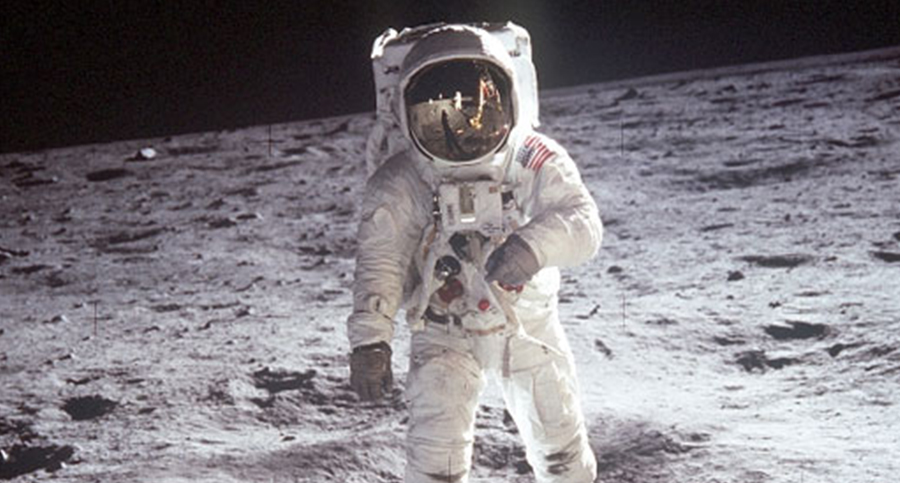Originally posted on Linkedin
We had the technology to go to the moon 50 years ago – this day – but with the end of the cold war, everything stopped. Why? Put simply – in my opinion – we lost the motivation. With the end of the cold war, there was no need to do better, to compete, to innovate. The West felt victorious in flexing its science and technology muscle by landing on the moon. The truth, however, is far removed as this should have been just the beginning.
Today we have SpaceX, Blue Origin, Virgin Galactic, NASA and ULA (Boeing/Lockheed Martin) among others working on programs to bring us into space and back onto the moon and other nearby celestial bodies. Lest we not ignore programs by the dozen or so other groups including the European Space Agency (ESA), the Russian (RSCSA) and Chinese (CNSA) consortiums, Israel (ISA), Japan (JAXA) and the very recent joiner, the Australian Space Agency (ASA). We have featured SpaceX before with one of their more ambitious programs to colonize Mars. Follow the above links to learn more about each group’s specific programs.
Some may say: why is going to space so important, given the many unresolved issues – often discussed in my blogs – plaguing Earth. Here are my top four reasons:
- Lifeboat experience: It’s a great place to find solutions to earth’s problems. Ellen MacArthur famously stated that she learned much about mother Earth when she first sailed solo around the world back in 2004. The first woman to do so, she had to carefully calculate her supplies of food, fuel, tools, and materials. Too much would add too much weight to the vessel and too little would have left her stranded in the middle of the ocean. Not knowing exactly what the weather, ocean and sea life would throw at her, she had to have enough supplies to survive and indeed thrive throughout her journey with minimal waste and left-overs. Earth is to space what a boat is to the ocean, with finite resources onboard and no space for trash. There is no nearby 711 to bail us out!
- Innovation by design: necessity is the mother of invention. Humans are very enterprising individuals, and we are at our best when we are faced with difficult challenges, requiring us to innovate. Indeed the science of design requires inventing solutions within given constraints. When innovating for a new circumstance, like in space, scientists identify potential approaches or solutions based on what the best available science tells us and then develop methods and techniques to test their hypothesis out. There is theory and then there is trial-by-error.
- Study in zero gravity: this brings me to one of the key reasons to experiment in space. There are a number of ideas or concepts that require a vacuum or zero gravity to truly test. The environment of space can provide an ideal backdrop for certain types of experimentation. Most of the trips to the International Space Station (ISS) over the past several years have been to conduct natural science and medical experiments or deploy equipment (such as satellites or telemetric devices) for this purpose.
- Backup plan: what might this be? We cannot anticipate our longevity here on earth. Scientists have stated on a number of occasions that there have been near misses (by asteroids and meteorites) and we cannot totally dismiss massive natural catastrophes nor some trigger-happy maniac. As Elon Musk aspires to “Making Humans a Multiplanetary Species” by placing upwards of one million humans on Mars, we should be looking to establishing multiple bases in space and on other planets. This adds to our resilience as a species.
Put simply, humans are going to space to benefit humans on earth. Space technology improves Earth. We have already seen leaps in materials technology, medical science, robotics, communications and computing drawn from our experiences in space. Indeed studying the heavens has revealed more about our past and allowed us to understand our future than any experiment conducted here on Earth.
My hope is that we will collaborate for space and not compete for space. I have spoken about this before in my article on space colonies and the Outer Space Treaty. I certainly hope that space venturing and colonizing will be for the collaborative good of all rather than for the benefit of a few, and not be used for just marketing initiatives as put forward by Japan’s Ispace Inc with lunar advertising, the Russian StartRocket billboards or arguably by SpaceX when it launched a Tesla into space last year or when it will be sending humans around the moon in 2023.
Is the well-being of people and planet important to you?
Discover how THRIVE Platform can help you contribute to a prosperous future for all of humanity.

